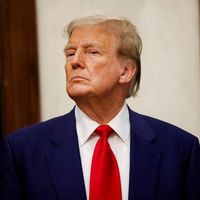Iran seeks 'controlled narrative' at home on US talks
Cautious statements from some Iranian officials and a paucity of disclosures by the tightly-controlled media on ongoing talks with the United States suggests an official desire to control the public discourse on the hyper-sensitive dossier.
Still, Iranian officials appear to have been willing to share information with Russian and Chinese counterparts.
While foreign ministry officials have openly expressed a desire to maintain secrecy about the talks' contents, they have coordinated closely with Russian and Chinese counterparts on their progress.
The Revolutionary Guards-linked newspaper Javan reported on Wednesday that Iranian Foreign Minister Abbas Araghchi's decision to withdraw from a preplanned online meeting at the Carnegie Endowment in New York on Saturday earlier in the week was a "calculated move aimed at controlling the narrative surrounding the Iran-US talks."
"Iran has no intention to negotiate in public," Aragchi said in a post on X on Monday.
Araghchi accused unnamed "special Interest groups" of "attempting to manipulate the course of diplomacy by smearing negotiators and pressuring the US administration to adopt maximalist demands."
While he emphasized that his focus was on "Iran's thoughts and objectives in the talks," he has not provided any substantive explanations to the Iranian public about these goals.
Officials have only vaguely mentioned their primary aim of lifting sanctions.
Araghchi also cited his concerns about the format of the Carnegie Endowment discussion, explaining that he feared his keynote address might turn into "an open Q&A."
Following this, the Carnegie Endowment expressed regret, noting that changes to the agreed format meant they had to cancel Araghchi's attendance.
Seeking a Controlled Narrative
Meanwhile, the Javan newspaper quoted a source saying Tehran is intent on crafting a "controlled narrative" to bolster its position in the talks.
"Iran understands the impact of public perceptions on diplomatic outcomes," the source added. "Avoiding a public platform strengthens its stance and demonstrates its commitment to achieving diplomatic results."
Promoting a Dominant Narrative
This aligns with remarks made by Iranian Government Spokeswoman Fatemeh Mohajerani on April 22, who described Iran's approach to presenting a "dominant narrative" about the negotiations.
"We aim to offer the first narrative after every round of talks," she added. "Consequently, many media outlets have adopted Iran's perspective following statements by Foreign Ministry Spokesman Esmail Baghaei immediately after the meetings."
Mohajerani portrayed this as a method of managing media coverage in the interest of transparency and accurate information dissemination. However, her assertion about transparency contradicted Baghaei's earlier comments on April 21.
"Details about the negotiations are not meant to be disclosed to the media," he said.







